The Pathway to a Sustainable Future: The UK’s Energy Transition
The Urgency of Energy Transformation
The United Kingdom, like many nations worldwide, is facing the pressing challenge of transitioning its energy landscape to a more sustainable model. With the growing awareness of the impact of climate change and the need to reduce greenhouse gas emissions, the UK government has set ambitious targets to shift towards renewable and low-carbon energy sources.
According to the latest data from the UK’s Department for Business, Energy & Industrial Strategy (BEIS), in 2021, the UK’s total energy consumption stood at 141.2 million tonnes of oil equivalent (Mtoe), with the largest share coming from petroleum (41.1%), followed by natural gas (32.9%) and electricity (20.0%). This reliance on fossil fuels has contributed significantly to the country’s carbon footprint, necessitating a fundamental transformation in the way energy is produced and consumed.
The Renewable Energy Surge
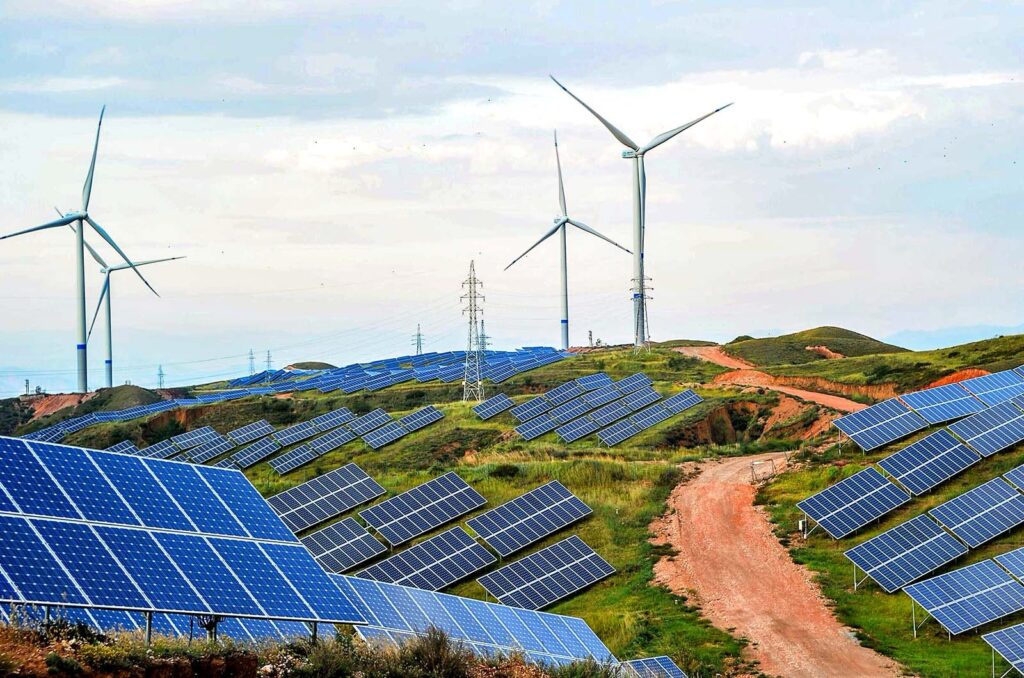
In recent years, the UK has made significant strides in increasing its renewable energy capacity. According to the UK’s Office for National Statistics (ONS), the share of electricity generated from renewable sources in the UK reached 29.5% in 2021, up from just 6.8% in 2010. This growth has been driven by a range of renewable technologies, including wind, solar, and bioenergy.
Wind Power: A Towering Presence
The UK has emerged as a global leader in wind power generation, with a total installed capacity of over 24.5 gigawatts (GW) as of 2021. This includes both onshore and offshore wind farms, with the latter playing a particularly significant role in the country’s renewable energy mix. The UK’s offshore wind capacity stood at 10.4 GW in 2021, accounting for over a third of the global offshore wind market.
Solar Power: Harnessing the Sun’s Potential

The solar energy sector in the UK has also experienced impressive growth in recent years. According to the Solar Trade Association, the UK’s total installed solar capacity reached 14.1 GW in 2021, with over 1 million homes now equipped with solar photovoltaic (PV) systems. This expansion has been driven by a combination of government incentives, technological advancements, and growing public awareness of the benefits of solar power.
Bioenergy: Diversifying the Renewable Mix
In addition to wind and solar, the UK has also made strides in the development of bioenergy, which includes the use of biomass, biogas, and biofuels. According to BEIS, bioenergy accounted for 7.4% of the UK’s total primary energy supply in 2021, making it a significant component of the country’s renewable energy portfolio.
The Road to Net-Zero Emissions
The UK’s commitment to addressing climate change is further demonstrated by its legally binding target to reach net-zero greenhouse gas emissions by 2050. This ambitious goal requires a comprehensive transformation of the country’s energy system, involving a significant increase in renewable energy generation, improved energy efficiency, and the adoption of low-carbon technologies.
The Climate Change Act and Carbon Budgets

The UK’s path towards net-zero emissions is guided by the Climate Change Act, which was first introduced in 2008 and has since been updated to reflect the country’s evolving climate targets. The Act establishes a series of legally binding carbon budgets, which set limits on the total amount of greenhouse gas emissions the UK can produce over five-year periods. These budgets are designed to ensure that the UK’s emissions reductions are on track to meet its long-term goals.
The Net-Zero Strategy
In 2021, the UK government published its Net-Zero Strategy, which outlines the policies and measures the country will implement to achieve its net-zero target. The strategy covers a range of sectors, including energy, transport, industry, and buildings, and sets out a clear roadmap for the transition to a low-carbon economy. Key elements of the strategy include the expansion of renewable energy, the phase-out of fossil fuels, the introduction of clean heating technologies, and the development of carbon capture and storage infrastructure.
Challenges and Opportunities
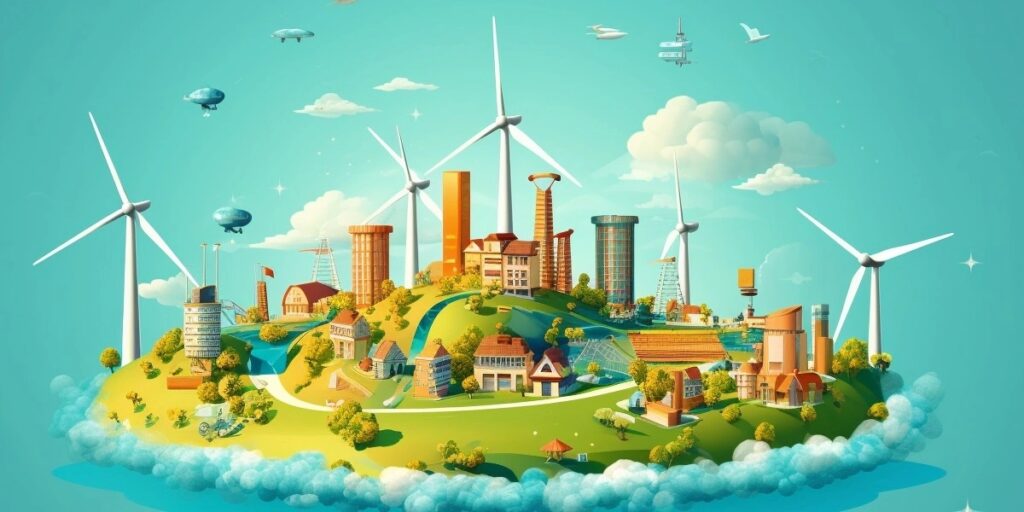
While the UK’s energy transition has made significant progress, there are still numerous challenges that must be overcome to ensure a smooth and successful transformation.
Grid Modernization and Energy Storage
One of the major challenges is the need to modernize the UK’s electricity grid to accommodate the increasing share of renewable energy. This requires significant investments in grid infrastructure, including the development of smart grid technologies and the integration of large-scale energy storage systems. According to the National Grid ESO, the UK will need to install up to 30 GW of energy storage capacity by 2050 to support the integration of renewable energy sources.
Affordability and Equity
Another key concern is the need to ensure that the energy transition is affordable and equitable for all segments of the population. Rising energy prices and the potential impact on low-income households have become a significant political and social issue in the UK. Addressing these concerns will require a balanced approach that combines targeted support measures, energy efficiency programs, and the development of innovative financing models.
Skills and Workforce Development
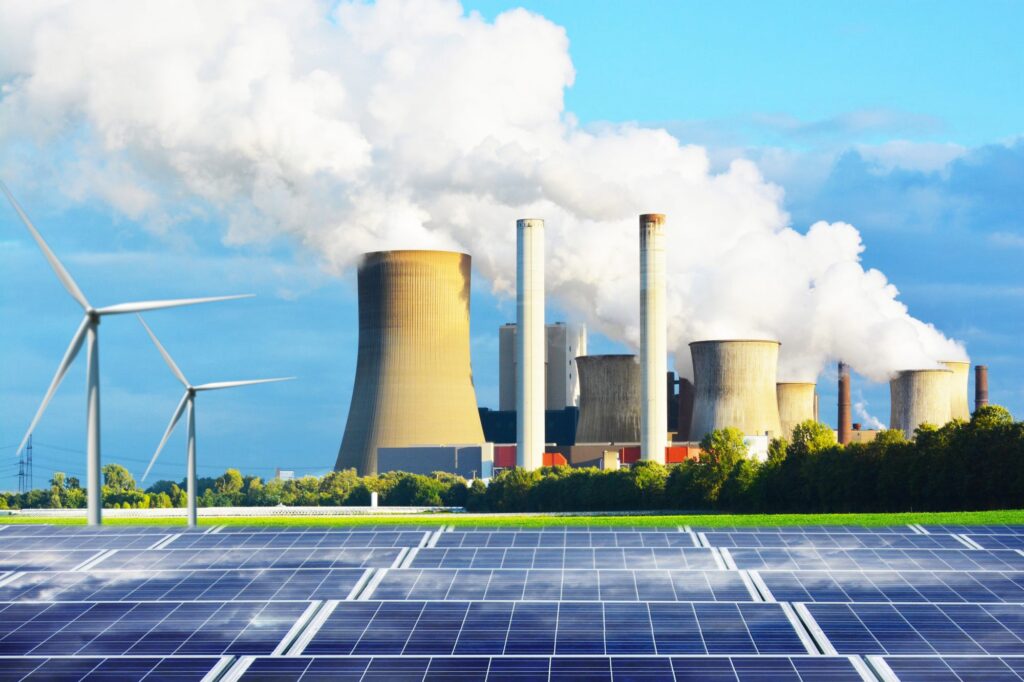
The transition to a low-carbon economy will also require a significant shift in the skills and expertise of the UK’s workforce. The government and industry will need to invest in training and upskilling programs to ensure that the country has the necessary human capital to support the development and deployment of new energy technologies.
Conclusion: A Promising Future
Despite the challenges, the UK’s energy transition holds significant promise for a more sustainable and resilient energy system. The country’s growing renewable energy capacity, the commitment to net-zero emissions, and the ongoing policy and infrastructure developments all point to a future where clean, affordable, and reliable energy is the norm.
As the UK continues to navigate this complex and dynamic energy landscape, it will be essential to maintain a collaborative and inclusive approach, engaging with stakeholders across the public and private sectors to ensure that the transition benefits all members of society. With a clear vision, a robust policy framework, and a steadfast commitment to innovation, the UK is well-positioned to lead the way in the global energy revolution and secure a more sustainable future for generations to come.
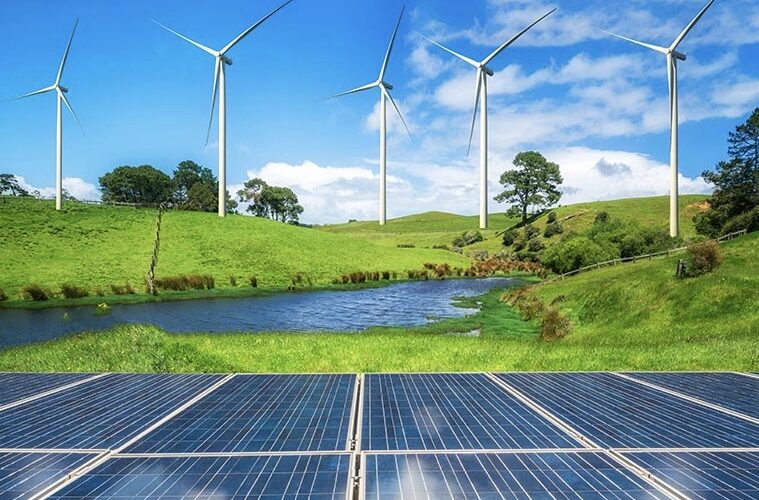
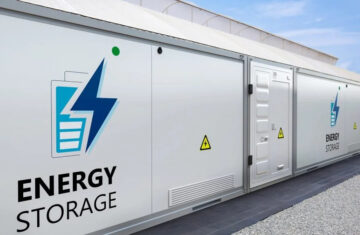


[…] protect jobs, provide retraining and skills development, and ensure that the benefits of the green energy transition are shared […]
[…] zur Umschulung und Qualifizierung ergreifen und dafür sorgen, dass die Vorteile der grünen Energiewende auf breiter Basis genutzt […]
[…] lavoro, forniscano riqualificazione e sviluppo delle competenze e garantiscano che i benefici della transizione verso l’energia verde siano ampiamente […]
[…] de recyclage et de développement des compétences, et veillent à ce que les avantages de la transition vers l’énergie verte soient largement […]
[…] os empregos, ofereçam reciclagem e desenvolvimento de habilidades e garantam que os benefícios da transição para a energia verde sejam amplamente […]
[…] el empleo, proporcionen reciclaje y desarrollo de capacidades y garanticen que los beneficios de la transición hacia la energía verde se compartan […]
[…] integration of solar energy into the transportation and building sectors, through the use of solar-powered electric vehicles […]
[…] Integration der Solarenergie in den Verkehrs- und Gebäudesektor durch den Einsatz von solarbetriebenen Elektrofahrzeugen und […]
[…] dell’energia solare nei settori dei trasporti e dell’edilizia, attraverso l’uso di veicoli elettrici a energia […]
[…] integração da energia solar nos setores de transporte e construção, por meio do uso de veículos elétricos movidos a energia […]
[…] de l’énergie solaire dans les secteurs des transports et du bâtiment, grâce à l’utilisation de véhicules […]
[…] integración de la energía solar en los sectores del transporte y la construcción, mediante el uso de vehículos eléctricos […]
[…] READ MORE Energy Transition in UK […]
[…] integration of wind power with other renewable energy sources, such as solar and energy storage, can create hybrid and […]
[…] integração da energia eólica com outras fontes de energia renovável, como a solar e o armazenamento de energia, pode criar […]
[…] dell’energia eolica con altre fonti di energia rinnovabile, come l’energia solare e lo stoccaggio di energia, può […]
[…] integración de la energía eólica con otras fuentes de energía renovables, como la solar y el almacenamiento de energía, puede […]
[…] und ein förderlicherer politischer Rahmen könnten dazu beitragen, das volle Potenzial der Wasserkraft in Großbritannien zu […]
[…] One of the primary challenges is the complex regulatory environment surrounding hydropower projects in the UK. The construction and operation of these facilities are subject to a range of environmental and planning regulations, which can create barriers to development and slow the pace of deployment. Streamlining these processes and ensuring a more supportive policy framework could help to unlock the full potential of hydropower in the UK. […]
[…] Um dos principais desafios é o complexo ambiente regulatório que envolve os projetos de energia hidrelétrica no Reino Unido. A construção e a operação dessas instalações estão sujeitas a uma série de regulamentações ambientais e de planejamento, o que pode criar barreiras ao desenvolvimento e diminuir o ritmo da implantação. A simplificação desses processos e a garantia de uma estrutura política mais favorável poderiam ajudar a liberar todo o potencial da energia hidrelétrica no Reino Unido. […]
[…] Una delle sfide principali è rappresentata dal complesso contesto normativo che circonda i progetti idroelettrici nel Regno Unito. La costruzione e il funzionamento di questi impianti sono soggetti a una serie di normative ambientali e di pianificazione, che possono creare ostacoli allo sviluppo e rallentare il ritmo di diffusione. Snellire questi processi e garantire un quadro politico più favorevole potrebbe contribuire a sbloccare il pieno potenziale dell’energia idroelettrica nel Regno Unito. […]
[…] Uno de los principales retos es el complejo entorno normativo que rodea a los proyectos hidroeléctricos en el Reino Unido. La construcción y explotación de estas instalaciones están sujetas a una serie de normativas medioambientales y de planificación, que pueden crear barreras al desarrollo y ralentizar el ritmo de implantación. Racionalizar estos procesos y garantizar un marco político más favorable podría contribuir a liberar todo el potencial de la energía hidroeléctrica en el Reino Unido. […]
[…] L’un des principaux défis est l’environnement réglementaire complexe qui entoure les projets hydroélectriques au Royaume-Uni. La construction et l’exploitation de ces installations sont soumises à une série de réglementations en matière d’environnement et de planification, qui peuvent créer des obstacles au développement et ralentir le rythme de déploiement. La rationalisation de ces processus et la mise en place d’un cadre politique plus favorable pourraient contribuer à libérer tout le potentiel de l’hydroélectricité au Royaume-Uni. […]
[…] Transitioning to a hydrogen economy requires significant upfront investment, which can be a barrier to widespread adoption. The UK government is seeking to address this challenge through funding programs, such as the Net Zero Hydrogen Fund, to support the development of hydrogen projects. […]
[…] A transição para uma economia de hidrogênio exige um investimento inicial significativo, o que pode ser uma barreira para a adoção generalizada. O governo do Reino Unido está tentando enfrentar esse desafio por meio de programas de financiamento, como o Net Zero Hydrogen Fund, para apoiar o desenvolvimento de projetos de hidrogênio. […]
[…] Der Übergang zu einer Wasserstoffwirtschaft erfordert beträchtliche Vorabinvestitionen, was ein Hindernis für eine breite Einführung sein kann. Die britische Regierung versucht, dieser Herausforderung durch Finanzierungsprogramme wie den Net Zero Hydrogen Fund zu begegnen, um die Entwicklung von Wasserstoffprojekten zu unterstützen. […]
[…] La transizione verso un’economia dell’idrogeno richiede significativi investimenti iniziali, che possono costituire un ostacolo all’adozione diffusa. Il governo britannico sta cercando di affrontare questa sfida attraverso programmi di finanziamento, come il Net Zero Hydrogen Fund, per sostenere lo sviluppo di progetti sull’idrogeno. […]
[…] Latransition vers une économie de l’hydrogène nécessite des investissements initiaux importants, ce qui peut constituer un obstacle à l’adoption généralisée de cette technologie. Le gouvernement britannique s’efforce de relever ce défi en mettant en place des programmes de financement, tels que le Net Zero Hydrogen Fund, afin de soutenir le développement de projets liés à l’hydrogène. […]
[…] La transición a una economía del hidrógeno requiere importantes inversiones iniciales, lo que puede suponer un obstáculo para su adopción generalizada. El Gobierno británico está tratando de afrontar este reto mediante programas de financiación, como el Net Zero Hydrogen Fund, para apoyar el desarrollo de proyectos de hidrógeno. […]
[…] “Transitioning to a greener future: The U.K. closes its last coal-fired power plant, marking a significant milestone in its energy transition.” […]
[…] advancing a sustainable economy. He stated, “At Avantus, we are committed to pushing forward the transition to a sustainable economy by developing safe, reliable clean energy projects. Catclaw is a perfect […]
[…] reforms aim to accelerate Scotland’s transition to renewable energy, ensuring a more efficient permitting process for new […]
[…] “Romania has made energy storage the top priority of the national energy system,” stated Energy Minister Sebastian Burduja. He highlighted that the newly signed contracts will already fulfill 20% of the country’s storage needs. Additionally, the allocation of 33 million euros in non-refundable funds for a photovoltaic panel factory in Bârlad marks a vital step toward revitalizing Romanian industry amid the energy transition. […]
[…] the region’s commitment to sustainability but also positions it as a leader in the UK’s transition to renewable energy. With ongoing efforts to enhance local renewable energy generation, Cornwall is paving the way for […]
[…] Australia continues its transition to renewable energy, farmers are set to play a crucial role in this transformation. With significant financial benefits […]
[…] including a 966 MW solar-wind hybrid system, a pumped hydro storage project, and various energy transition efforts aimed at decarbonization. Tata Power plans to leverage this funding to enhance its power […]
[…] projects have paved the way for the next generation of offshore wind farms, contributing to the transition towards sustainable energy […]
[…] The collaboration between Taylor Woodrow and ScottishPower Renewables signifies a major step forward in the development of renewable energy infrastructure in the UK, contributing to the country’s transition to sustainable energy. […]
[…] reflects Boralex’s commitment to expanding its renewable energy portfolio and contributing to the UK’s energy transition. The approval from the Highland Council for the Loch Toftingall BESS in Caithness is a significant […]